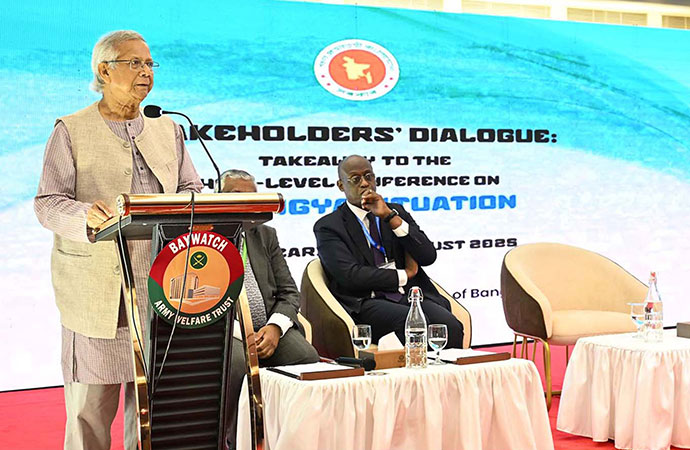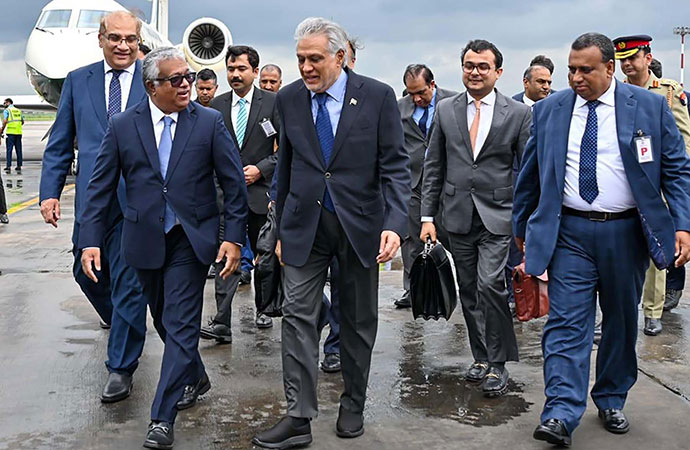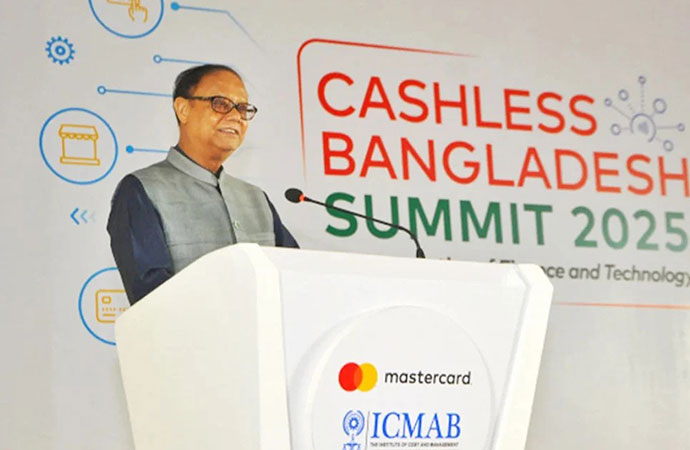Reportage

Photo: PID
Prof Yunus places 7-point roadmap for Rohingya repatriation
Chief Adviser Prof Muhammad Yunus has placed seven-point proposals, seeking collective efforts for charting a practical roadmap for the speedy, safe, dignified, voluntary and sustainable return of the Rohingyas to their homes in Rakhine as soon as possible.
"We must not be held hostage to mere rhetoric. The time for action is now," he said while speaking as the chief guest at the 'Stakeholders Dialogue' on the Rohingya situation held in beach town of Cox's Bazar.
Prof Yunus said it is not only the responsibility of Bangladesh but also of the international community to share the burden of the Rohingya crisis, to reflect on the possible solutions and to play an active role in implementing them.
He said the Rohingya issue and its sustainable resolution must be kept alive on the global agenda as they need support until they return home.
In that spirit of solidarity, during the last Ramadan in March this year, the Secretary General of the United Nations Antonio Guterres and Prof Yunus joined over one hundred thousand Rohingyas in an Iftar in Cox's Bazar.
"We clearly heard Rohingyas' keen desire to return home as soon as possible," Prof Yunus said.
The special session, as part of the three-day conference, began at 11am that called for joint efforts to ensure sustainable peace in Myanmar and in the region, dignified repatriation of the Rohingyas, addressing the challenges on multiple fronts.
A one-minute silence was observed on the occasion of 'Rohingya Genocide Remembrance Day.' A documentary was also screened on the Rohingya crisis.
Speaking at the event, High Representative for the Rohingya Issue and National Security Adviser of Bangladesh Dr Khalilur Rahman called for concrete international action to ensure safe and dignified repatriation of the Rohingyas to their place of origin in Myanmar.
"We need to continue what we are doing," Khalilur Rahman said.
Adviser for Ministry of Disaster Management and Relief Faruk E Azam, Bir Protik, Foreign Secretary Asad Alam Siam, Assistant High Commissioner for Operations and Assistant Secretary-General, UNHCR Raouf Mazou among others spoke.
Seven Proposals
Right to Return: Ensure Rohingyas' speedy, safe, voluntary and sustainable repatriation to Rakhine without delay.
Sustained Aid: Donors must fill gaps in the 2025-26 Joint Response Plan and guarantee long-term funding.
End Violence: Myanmar authorities and Arakan Army must stop attacks, ensure Rohingya security, prevent new outflows, and allow IDPs to return home.
Dialogue: Establish a platform for inclusive dialogue to reduce tensions, restore rights, and promote reconciliation.
Global and Regional Role: ASEAN, neighbours, and the international community must foster peace, stability, and combat cross-border crimes.
Oppose Ethnic Cleansing: Stakeholders must stand firmly against ethnic cleansing and calibrate relations with Myanmar and conflict parties.
Accountability: Strengthen ICJ and ICC processes, implement ICJ measures, and deliver justice for genocide and crimes against humanity.
Prof Yunus said the Rohingya crisis emanated from Myanmar and the solution also lies there.
"All parties must act to end the crisis with greater resolve without any further delay," he said, adding that "Your solidarity with the Rohingya voice could be a beacon of hope for them in reversing their marginalization and persecution as the starting point of their return to their homeland."
"Let us all join our hands and pronounce our determination to contribute to their dignified return, ensuring justice and accountability," said the Chief Adviser.
He recalled that last year, in the United Nations General Assembly, he made a three-point proposition to address the Rohingya crisis. In recognition of my call, the High-Level Conference was envisaged for this year's General Assembly.
"I hope that this Dialogue here in Cox's Bazar will contribute substantially to the Conference in New York in shaping up the roadmap for an expedited and permanent solution of the Rohingya crisis," Prof Yunus said.
He said Bangladesh supports and is working relentlessly for a sustainable solution to your crisis.
Dialogue is aimed at amplifying your voice in rolling out a roadmap towards early, voluntary and sustainable return to your homeland," said the Chief Adviser.
On the 8th 'Rohingya Genocide Remembrance Day', with a heavy heart, Prof Yunus drew attention of all to the forced displacement of Rohingyas, and their exodus to Bangladesh from Myanmar.
In a spate of only few weeks in August 2017, around eight hundred thousand Rohingyas crossed into Bangladesh.
They came to Bangladesh to save their lives. "Unfortunately, the barbaric attack and persecution still persist. Hence, we see fresh arrivals at our doorsteps even today," he said.
"On this fateful day, it is our moral responsibility to take the right side of history and stop the armed actors from carrying out their horrible design of ethnic cleansing of entire Rohingya populace," said.
Prof Yunus, adding that it will be a historic blunder, if they wait for seeing the very last Rohingya leaving Rakhine.
Prof Yunus said they see fearful and shattered eyes of Rohingya women and men when they appear at our doorsteps with horrific stories.
The stories include, among others, systematic persecution, denial of nationality, forced deportation, mass killing, rape, inhuman torture, destruction of their properties in arson and so on.
"That is why, in 2017 and even before that, Bangladesh opened its border to the Rohingya in a humanitarian gesture to save their lives despite resource and capacity constraints," Prof Yunus said.
"This manifests our empathy and compassion towards fellow human beings during their gravest humanitarian crisis," he added.
He said they don't afford any more to stand silent at the protracted situation of Rohingyas and urged upon the international community to undertake collective efforts to stop the Myanmar Junta and the Arakan Army from unleashing violence against the Rohingya.
"Effective role of the international community is much more needed than ever before," he said.
Prof Yunus acknowledged continued support, assistance and solidarity of the donors, partners, UN agencies, international organizations and friends across the globe to the Rohingyas sheltered in Bangladesh.
"We greatly value your compassion and continued partnership for the Rohingyas. Your continued support will remain pivotal and exigent until they return home," Prof Yunus said.
Bangladesh now hosts 1.3 million forcibly displaced Rohingyas from Myanmar that makes Cox's Bazar the largest refugee camps.
In addition, around thirty-two thousand new babies are born each year in Rohingya camps.
"On the contrary, only less than five hundred thousand of them are living in Myanmar. This picture manifests that due to continued persecution, Rohingyas are leaving Myanmar," Prof Yunus said.
During the last eight years, people of Bangladesh, in particular the host community here in Cox's Bazar have been making tremendous sacrifices.
The impact on the economy, resources, environment and ecosystem, society and governance have been huge. "I thank our host community and the people of Bangladesh for their whole hearted support and enormous sacrifices for the Rohingya," Prof Yunus said.
He said they do not foresee any scope whatsoever for further mobilization of resources from our domestic sources given our numerous challenges.
The three-day international conference titled 'Stakeholders' Dialogue: Takeaways to the High-Level Conference on Rohingya Situation' began in Cox's Bazar on Sunday with the aim of engaging global stakeholders to find solutions to the prolonged Rohingya crisis.
Country Ready for Elections
Chief Adviser Prof Muhammad Yunus has said the country has reached a 'stable enough' position and is ready to have the national election in the first half of February next year.
"We announced the election in the first half of February 2026...the interim government will be replaced by an elected government," he said at the beginning of his speech at the 'Stakeholders' Dialogue' in the beach town of Cox's Bazar.
Prof Yunus said he has come here at a very important moment in their political history.
One year back, he said, they had gone through a killing spree and followed by the students-led uprising to free the country from the fascist regime.
"Now, we are ready for another transition in our political history. We have announced the time for the election. It's just about a year back, we had the uprising and the country has come to this stable enough and ready to have the election," Prof Yunus said amid the presence of representatives of the international community.
Representatives from governments, UN agencies and international organisations were present.
Prof Yunus hoped that they could work out a solution to the Rohingya problem to let them go back to their own home.
"As part of this transition process that we are going through, it will be complete when we see we have also achieved this goal, to have all our Rohingya guests return to their own home in their own environment," he said.
The Rohingya crisis originated from Myanmar and the solution also lies there, he said, adding that all parties must act to end the crisis with greater resolve without any further delay.
Dialogue Key, Rights Must Be Respected
United Nations Assistant Secretary-General and UNHCR Assistant High Commissioner for Operations Raouf Mazou has said a political solution to the Rohingya crisis in Myanmar must be found and the United Nations (UN), led by the Secretary-General and his Special Envoy, continues to work in support of these efforts.
"In order to start recreating conditions for the return of refugees, dialogue with all parties is a critical first step. Rights must be respected and, as the Secretary-General said, civilians must be protected," he said, while speaking at the 'Stakeholders' Dialogue' on the Rohingya situation.
Mazou, however, said much more needs to be done by a multiplicity of actors, including regional bodies and neighboring states, for peace to return to Myanmar and more specifically the Rakhine State.
"The consultations we are having today, facilitated by the High Representative, are therefore essential to chart a way forward - in which the wellbeing of Rohingya refugees, particularly women, children and youths, should remain central," he said.
It prepares for the high-level conference on the situation of Rohingya and other Muslim minorities planned for September 30, 2025 during the United Nations General Assembly high-level segment.
"The voluntary return in conditions of safety and dignity remains the most desirable solution and the responsibility to create the conditions for it to happen lies squarely on Myanmar," Mazou said.
Eight long years have passed since 700,000 Rohingya were compelled to flee Myanmar to Bangladesh, pushed by unspeakable violence and human rights violations in Myanmar's Rakhine state. They are presently over 1.3 million in Bangladesh.
In a world where the right of asylum is sometimes questioned, Mazou said Bangladesh's response has been remarkable, with local populations welcoming those in desperate need despite the difficult circumstances in which they sometimes find themselves.
The international community has played its role, providing hundreds of millions of dollars to respond to the humanitarian needs of refugees in Cox's Bazar and in Bhasan Char.
"However, as the situation has prolonged, and the number of forcibly displaced has continued to increase around the world, reaching 120 million by the end of 2024, it has become increasingly difficult to mobilise the resources required," said Mazou.
As of today, the funding of the Joint Response Plan stands at approximately 60%.
"While the continued provision of food assistance could be secured until December the availability of LPG beyond September is uncertain. Services such as education and health have already been reduced," Mazou said.
He said it is essential that, as Bangladesh continues to provide a global public good, the required funding is made available in the spirit of burden-sharing, reaffirmed by the Global Compact on Refugees. "Merely providing humanitarian assistance neither constitutes a solution nor ensures protection," Mazou said.
There are an estimated 3.5 million internally displaced persons in Myanmar, and in the past 18 months alone, 150,000 more Rohingya have fled targeted violence to Bangladesh.
"A comprehensive response continues to be required to meet individual needs in a manner that helps prepare for the eventual return because long-term dependency on humanitarian assistance does not prepare Rohingya refugees for the part they ought to play in the reconstruction of their country once they return," Mazou said.
"We need more innovative approaches that accommodate the need for refugees to retain their ability to play an active role in the reconstruction of their country while not creating conditions that would make the eventual return elusive," he said.
Mazou said their presence in Cox's Bazar today is a clear indication of our determination to be by the side of the refugees, represented in this meeting - as well as the government and people of Bangladesh and be part of the solution.
A situation involving over one million displaced persons cannot be left to morph into a regional crisis affecting all countries in the region, he said.

























Leave a Comment
Recent Posts
Religion and Politics: A Toxic ...
At Dhaka University, cafeteria workers have been told not to wear shor ...
Enayetullah Khan joins AsiaNet ...
AsiaNet’s annual board meeting and forum was held in Singapore, ...
In a New York minute
Many leaders back a UN call to address challenges to ..
Defaulted loans at Non-Bank Financial Institutions ( ..
How the late Zubeen Garg embodied cultural affinitie ..